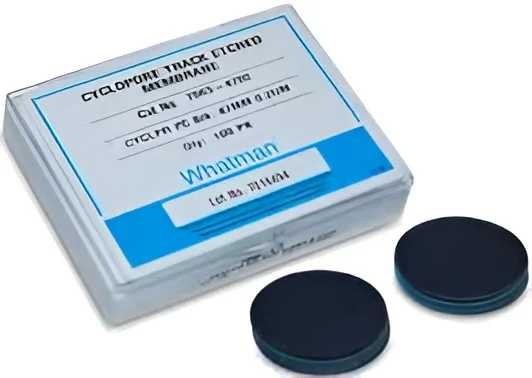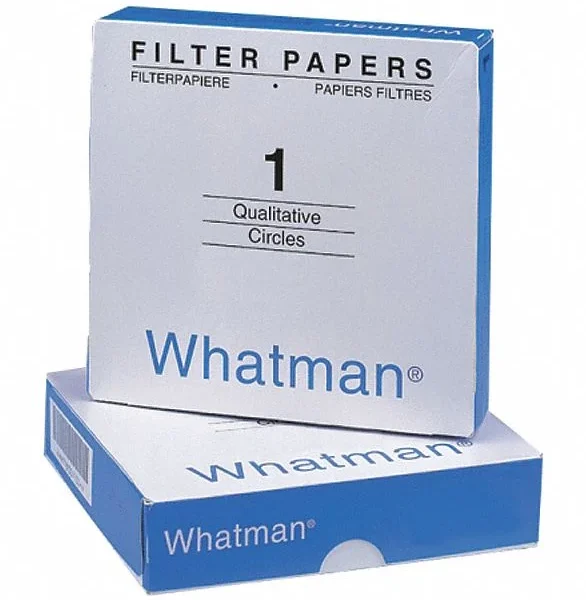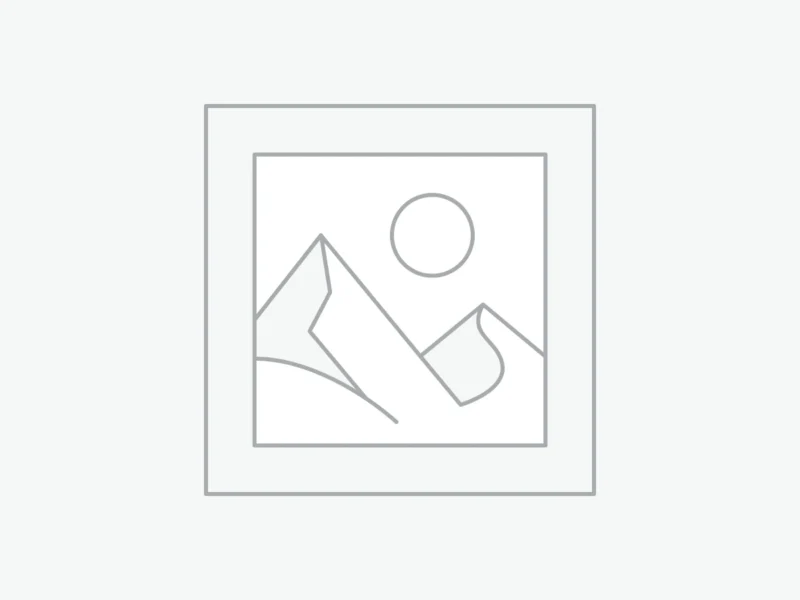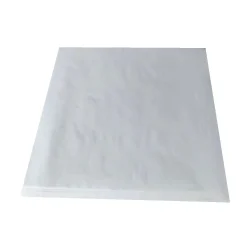Description
Specifications Table
Product Name—Whatman CYL PC Membrane Filter
Quantity/Pack Size – 13MM, 0.4 μm (Pack of 100) | 25MM, 0.1 μm (Pack of 100) | 25MM, 0.2 μm (Pack of 100) | 25MM, 0.4 μm (Pack of 100) | 25MM, 2.0 μm (Pack of 100) | 25MM, 5.0 μm (Pack of 100) | 25MM, 8.0 μm (Pack of 100) | 25MM, 12.0 μm (Pack of 100) | 47MM, 0.1 μm (Pack of 100) | 47MM, 0.2 μm (Pack of 100) | 47MM, 0.4 μm (Pack of 100) | 47MM, 1.0 μm (Pack of 100) | 47MM, 3.0 μm (Pack of 100) | 47MM, 5.0 μm (Pack of 100) | 47MM, 8.0 μm (Pack of
Form – Membrane Disc
Grade – Laboratory Grade
Application – Sterile Filtration, Particle Analysis, Microbiological Testing
Product Overview
The Whatman CYL PC Membrane Filter is engineered for precision filtration in demanding laboratory environments. Constructed from high-purity polycarbonate, these hydrophilic membranes offer exceptional chemical resistance and thermal stability, ensuring reliable performance across diverse applications. The uniform pore structure provides consistent particle retention while maintaining high flow rates, making them ideal for critical filtration tasks where accuracy is paramount. With low extractables and minimal protein binding, these filters preserve sample integrity, particularly in sensitive analyses. The smooth, non-fibrous surface minimizes particle adsorption, enhancing recovery rates for downstream processes. Available in a comprehensive range of pore sizes (0.1 μm to 12.0 μm) and diameters (13mm, 25mm, 47mm), this series accommodates various sample volumes and filtration requirements. Each pack contains 100 sterile discs, individually wrapped to prevent contamination. The filters are compatible with standard filtration apparatus and can withstand autoclaving, ensuring versatility in sterile workflows. Their optical clarity allows for easy microscopic examination of retained particles, adding value to analytical procedures. The Whatman CYL PC series represents a balance of durability, purity, and performance, meeting the exacting standards of modern laboratories.
FAQs
1. What is the chemical compatibility of Whatman CYL PC membrane filters?
These polycarbonate membranes exhibit excellent resistance to most organic solvents, acids, and alkalis, making them suitable for a wide range of chemical filtration applications. They maintain structural integrity with alcohols, hydrocarbons, and dilute mineral acids, though compatibility should be verified for specific aggressive solvents.
2. How does the pore size affect filtration performance?
Pore size directly influences both particle retention and flow rate. Smaller pore sizes (0.1 μm-0.4 μm) provide absolute retention of bacteria and fine particles but may require higher pressure differentials. Larger pores (2.0 μm-12.0 μm) allow faster flow rates and are better suited for pre-filtration or larger particle separation. Select based on your target particle size and desired throughput.
3. Can these filters be used for air or gas filtration?
While primarily designed for liquid filtration, Whatman CYL PC membranes can be adapted for air or gas filtration in specific applications. Their hydrophobic nature when dry makes them suitable for venting applications or sterile air filtration, though performance should be validated for your particular gas composition and flow requirements.
4. What is the recommended storage condition for these filters?
Store the filters in their original packaging at room temperature (15-30°C) in a clean, dry environment. Avoid exposure to direct sunlight or extreme humidity. The individually wrapped sterile filters should remain sealed until use to maintain sterility. For long-term storage, consider placing packs in secondary containment to prevent potential contamination.
5. How do these compare to cellulose acetate or nitrate membranes?
Polycarbonate membranes like the CYL series offer superior chemical resistance and thermal stability compared to cellulose-based membranes. They provide more consistent pore sizes and lower protein binding, making them preferable for applications requiring precise particle retention or when working with proteinaceous samples. However, cellulose membranes may offer higher flow rates in some applications and are typically more cost-effective for routine filtration tasks.




